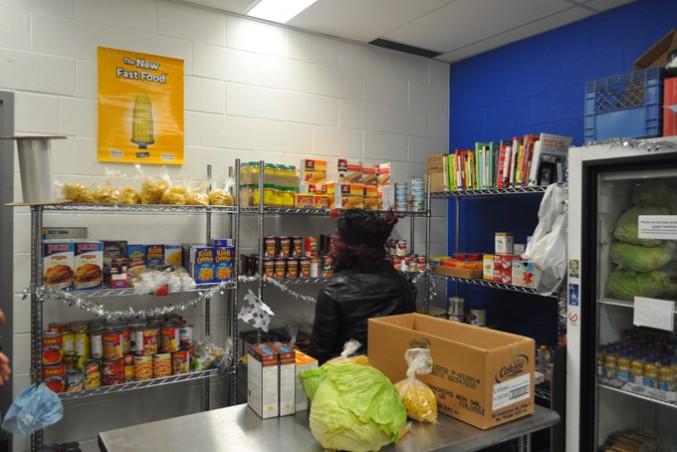By Nicole Brumley
Students across Canada are struggling to afford balanced daily meals as a result of high tuition costs and expenses for rent and books.
A recent report from Meal Exchange, published in Maclean’s, suggests that an estimated 39 per cent of university students face food insecurity and worry about where their next meal will come from.
According to the report, financially independent international students, Aboriginal students and those with dependent children are particularly vulnerable to food insecurity. The study used an online tool to survey students across Canada at Dalhousie, Lakehead, Calgary, Brock and Ryerson.
Some students have no choice but to rely on external support. At Ryerson, many turn to the Good Food Centre—one of the Ryerson Students’ Union’s equity service centres.
Andrea Vaz, a first-year mid-wifery student, juggles studying and working full-time. She said having access to the centre is sometimes the difference between having dinner and relying solely on lunch leftovers offered at work.
“Food is probably the last thing on my list. I definitely don’t eat breakfast because I can’t afford all three meals,” said Vaz. “With the Good Food Centre, they give me enough substantial food that I can eat dinner at least.”
Food is allocated based on a credit system. Each member gets 10 credits per week and those with dependents receive an extra five credits per dependent. Items at the food bank are one credit, with some exceptions.
In the latest annual Hunger Report, released by the Good Food Centre, over 400 recorded members reported experiencing food insecurity. Additionally, over 2,500 visits to receive emergency food relief were recorded between September 2013 and 2014 (emergency food relief is when someone risks not eating if they don’t get food that day).
Students from the engineering and architectural science and community services programs were reported to use the service most. At 52 per cent, the majority of the members were female, while 47.5 per cent were male and 0.5 per cent identified as trans.
The Hunger Report states that these numbers only reflect a small fraction of the food insecurity on campus because it doesn’t account for the students, staff and faculty who do not access the service due to lack of awareness, embarrassment or fear of judgment.
Claire Davis, a volunteer and community engagement coordinator for the Good Food Centre and third-year urban sustainability student, said she has seen first-hand how stigma affects the way members bring food away from the centre.
“People really want it in a bag so it’s discreet or they will ask us if we have a box … just so it doesn’t look like they’ve come to the food bank,” said Davis.
Despite mixed feelings, Davis said the Centre provides dignified food security because the service is “always for students by students.”
Rachel Atuhaire, a third-year business management student at Ryerson and member of the Good Food Centre, has been using the service for two years.
“It’s a big cost saving method … especially as a student. I run a business and I don’t work full-time,” said Atuhaire. “I want [Ryerson] to acknowledge that being a student can actually take a big notch into your account to the point where you don’t have anything to eat.”
The 2014 Hunger Report set out a list of recommendations for Ryerson, including the establishment of committed yearly funding.
According to the Hunger Report, while the university has given generous donations in the past to the centre, it receives no guaranteed year-to-year financial support.* Its main operating budget comes from RSU fees and fundraising and “is not robust enough” to provide adequate levels of food for the demand.
Last year, the Food Centre ran into problems with low inventory, which meant relying on canned food as opposed to fresh produce.
Michael Forbes, a Ryerson spokesperson, said the Ryerson vice president of administration and finance created a new policy this year that permits remaining balances of residence meal plans to be directed towards the centre. Last year, Ryerson more than doubled every dollar donated by students by putting meal plan refunds towards the centre and emergency food fund.
Correction: an earlier version of this story incorrectly stated that the university does not provide the Good Food Centre with official funding. The Eyeopener regrets this error.










Leave a Reply